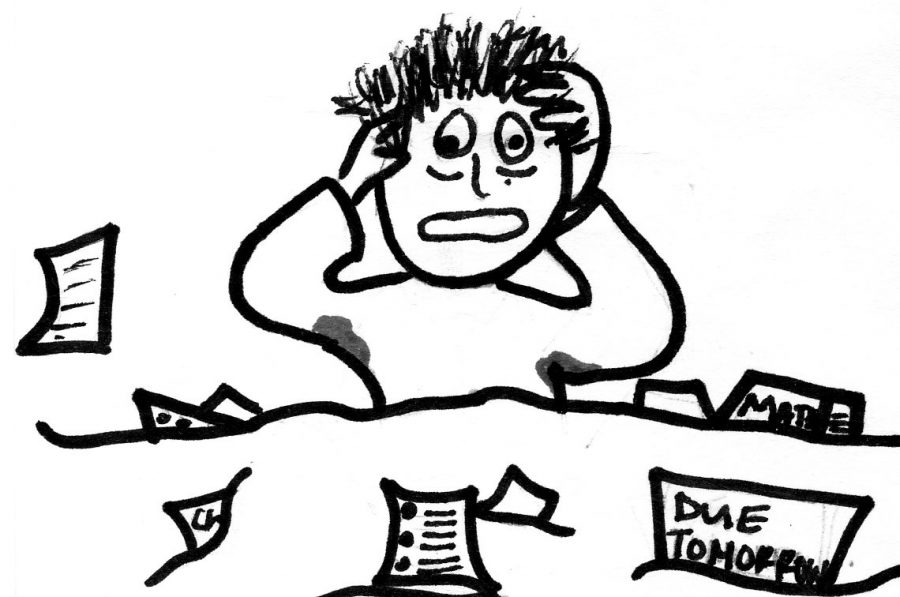Homework Not Linked To Excess Success, Study Shows
Since the dawn of time it has seemed that students haven’t coped well with heavy work loads after long school days. So there must be some way to improve their lot, right?
January 4, 2017
Picture this: You get home from school after a day full of projects, quizzes, and strenuous class work. Just when you think you’ll get to rest, you remember that you have to complete all of the homework that your teachers assigned. You work for hours, only taking short breaks to scarf down some pizza rolls while you try to keep your hand from cramping from all of the writing you’re doing. At midnight, your brain is fried. You want to give up, but your grade will certainly be affected.
High school students of today are often overwhelmed with assignments required to be completed outside of school. Many students end up having to chose between a good night’s sleep and completed homework.
The average high school student in the United States has over seven hours of homework per week. This workload can often cut into the student’s time for extracurriculars and family. In addition, students may become sleep deprived from staying up late to finish work.
With all of the resources used to create and complete homework, there seems to be great disadvantage in the long run to completing hours of homework at a time. Teachers often assign homework because they don’t want students to forget the material between classes. However, this logic may be counterproductive.
The Programme for International Student Assessment (PISA) is an exam administered to 15 year olds around the world to measure reading, math, and science skills. The United States has an overall performance ranking of 35. Singapore ranks number two overall only behind China, and Finland is ranked at twelfth. Both Finland and Singapore assign an average of two to three hours of homework per week, which is substantially less than the USA, yet both countries rank far higher on the PISA exam. These results prove that a lot of homework does not necessarily lead to more success.
Homework can be beneficial if administered properly. It can allow students to further their understanding of the subject, and it provides an opportunity for students to take initiative to complete it while preparing them for exams. However, if given in excess, homework can be detrimental to the student, causing stress and anxiety and potentially causing the student to hate the subject.
Teachers should be mindful of the amounts of homework that they require to be completed by their students. Homework is most effective when given in small amounts with the intention of furthering the student’s knowledge, and teachers should be more aware of the type of homework that they administer.



